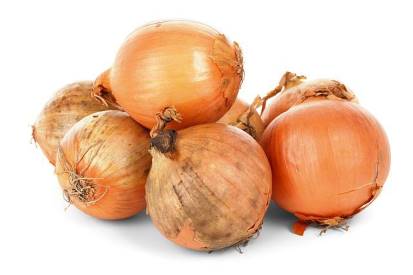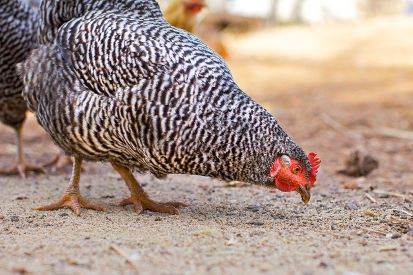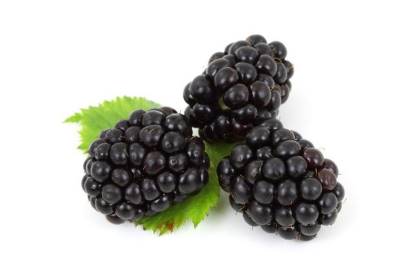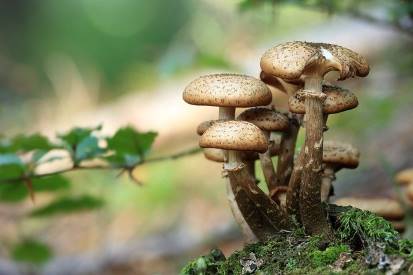As a chicken owner, I often ask, can chickens eat onions? Onions are a staple in my kitchen, and as a result, there are always a few scraps that could be used as treats for my flock. But are they safe? After extensive research and conversations with fellow poultry enthusiasts, I can tell you that the answer is complicated.
While adopting a simplistic view on this matter is tempting, the reality is nuanced. Chickens can technically eat onions, but that doesn’t mean they should regularly feast on them. Onions contain thiosulfate, which can cause hemolytic anemia in chickens. This condition, which involves the destruction of red blood cells, typically results from substantial and consistent consumption of onions.
In the following sections, we’ll explore the essential elements of a chicken’s diet, the nutritional composition of onions, common myths versus reality, potential risks of feeding onions to chickens, and safer alternatives to include in your chickens’ meals. This article aims to provide a balanced view on this complex topic, helping you make informed decisions about your chickens’ dietary needs.

Understanding a Chicken’s Dietary Needs
Chickens are hardy birds that can survive on a diverse range of food sources. However, their diet needs to be as balanced and nutritionally comprehensive as possible to thrive. Let’s explore this further.
The Essential Elements in a Chicken’s Diet
The building blocks of a healthy chicken diet are proteins, carbohydrates, vitamins, and minerals. Chickens need a good amount of protein for growth and egg production. Carbohydrates provide the energy to peck, scratch, and run around. Vitamins and minerals, while needed in smaller amounts, play a critical role in bone health, eggshell strength, and overall vitality.
Importance of Dietary Variety for Chickens
Chickens can’t survive solely on grains and seeds. They need variety to get all the essential nutrients. This includes greens, fruits, and even the occasional treat of dairy or meat.
The Role of Treats and Scraps in a Chicken’s Diet
Kitchen scraps and treats can be a good supplement to their diet. But be cautious; not all human foods are safe for chickens.
[ChickenAffiliate]
Overview of Onions
Onions, a common kitchen ingredient, are often a subject of debate among chicken owners. Understanding the nutritional makeup and potential benefits of onions can help us determine their place in a chicken’s diet.
Nutritional Composition of Onions
Onions are a good source of vitamins C and B6, fiber, and other beneficial compounds. They have strong antioxidant and anti-inflammatory properties.
Potential Health Benefits of Onions
For humans, onions support the immune system, regulate blood sugar levels, and even aid in preventing certain types of cancers.
Types of Onions and Their Differences
There are several types of onions, including red, white, and yellow. While their nutrient content is similar, the concentration of certain compounds can differ.
Can Chickens Eat Onions: Myth Vs. Reality

The topic of chickens and onions often results in intense debates among poultry owners. Some suggest that onions are a strict no-no, while others argue that these bulbous veggies are safe. The truth, however, lies somewhere in the middle. It’s not a black-and-white situation; instead, it involves carefully evaluating myths, scientific evidence, and the circumstances contributing to the confusion.
Common Myths about Chickens and Onions
One of the most pervasive myths in the poultry world is that onions are toxic to chickens, and consuming even a tiny bit can lead to severe health problems. On the flip side, some believe that onions are entirely safe and can improve a chicken’s health due to their rich nutritional profile.
While both statements contain elements of truth, they fail to paint the full picture. Onions can harm chickens, but it usually takes a significant quantity consumed over time to cause toxicity. On the other hand, onions’ nutritional benefits, such as antioxidants, might not significantly contribute to a chicken’s health, given the small amounts they can safely consume.
Scientific Evidence on Chickens Eating Onions
Scientific studies have confirmed that onions, particularly thiosulfate, can cause hemolytic anemia in chickens, known as “onion poisoning.” However, these cases are usually associated with the chickens eating large amounts of onions over time, not the occasional scrap.
Hemolytic anemia is when red blood cells are destroyed faster than they can be produced, leading to weakness, breathlessness, and, potentially, death. But, once again, this is not an instant reaction to a single piece of onion but the result of substantial and consistent onion consumption.
Why the Confusion Exists
The confusion surrounding the question of whether chickens can eat onions primarily stems from the effects of onions on chickens are dose-dependent. While small amounts of onions might not cause noticeable harm, regular or large doses can lead to serious health problems.
Additionally, individual chickens might have varying levels of tolerance towards onions. Some might show symptoms after consuming small amounts, while others seem fine. The lack of a one-size-fits-all answer and the variability of chickens’ reactions to onions contribute to the ongoing debate and confusion.
Potential Risks of Feeding Onions to Chickens

While onions aren’t completely off the menu for chickens, knowing the potential risks is important.
Impact of Excessive Onion Consumption on Chickens’ Health
Feeding your chickens large amounts of onions over time can lead to health issues, such as onion toxicity or onion poisoning, which can cause anemia and even death.
Specific Harmful Compounds in Onions: Thiosulfate
The compound in question is thiosulfate. It’s not harmful to humans but can damage red blood cells in chickens, leading to hemolytic anemia.
Symptoms of Onion Poisoning in Chickens
The signs of onion poisoning in chickens include lethargy, loss of appetite, pale comb and wattles, and decreased egg production. If you notice any of these symptoms, it’s best to consult a vet.
Safe Ways to Introduce Onions in a Chicken’s Diet
If you still want to give onions to your chickens, here are a few tips on doing it safely.
Appropriate Quantity of Onions for Chickens
The key here is moderation. Most chickens can tolerate a small amount of onions mixed with other foods.
Preparing Onions for Chickens: Raw, Cooked, or Dried?
Both raw and cooked onions contain thiosulfate, but cooking can break down some of the compound. Therefore, cooked onions are somewhat safer.
Tips to Gradually Introduce Onions to Chickens
Start with a tiny bit of onion and observe your chickens for any adverse reactions. If they seem fine, you can gradually increase the quantity.
Alternatives to Onions in a Chicken’s Diet

If you’re still unsure about onions, there are plenty of other nutritious foods chickens can safely consume.
Nutritious Foods Chickens Can Safely Consume
Some safer options include leafy greens, carrots, berries, melons, squash, tomatoes, and grains like corn and wheat.
Why Variety is Important in a Chicken’s Diet
A variety of food ensures your chickens get a balanced diet. It also keeps them interested in their food.
Tips for Introducing New Foods to Chickens
When introducing new foods, start slowly and monitor your chickens’ reactions. Remember to clean up any uneaten food to prevent mold and disease.
What else may be dangerous for chickens to eat?

Beyond onions, other common household foods can also pose risks to your chickens. Understanding the potential harm of these items is key to keeping your flock safe and healthy. Let’s delve into five items: avocado, mushrooms, garlic, jalapenos, and chives.
Avocado
Avocado, particularly the pit and skin, contains a toxin known as persin, which can harm birds, including chickens. While the flesh of ripe avocados is generally safe in small amounts, it’s best to avoid them altogether to prevent accidental ingestion of the toxic parts.
Read More: Can Chickens Eat Avocado? The Truth About This Superfood
Mushrooms
While many types of mushrooms are safe, certain varieties can be toxic. Given the difficulty distinguishing between safe and poisonous mushrooms, avoiding feeding them to chickens is advisable.
Read More: Can Chickens Eat Mushrooms? Revealing The Fungi Mystery
Garlic
Garlic, in moderation, can be beneficial for chickens due to its antimicrobial properties. However, like onions, garlic contains thiosulfate, which can cause hemolytic anemia. Small amounts, especially if cooked, are typically safe, but avoid large quantities.
Read More: Can Chickens Eat Garlic? Unpeeling The Truth
Jalapenos
Chickens don’t perceive capsaicin, the compound that makes jalapenos hot, in the same way humans do. Therefore, they can eat jalapenos without discomfort. However, remember to remove the seeds and offer them in moderation, as the high fiber content can affect their digestion.
Read More: Can Chickens Eat Jalapenos? A Spicy Exploration
Chives
Chives, like onions and garlic, belong to the Allium family. They contain thiosulphate, which can be harmful to chickens. While a small amount may not cause immediate harm, keeping your flock away from chives is best to avoid potential health risks.
Read More: Can Chickens Eat Chives? 5 Excellent Benefits
Frequently Asked Questions (FAQs)
How much onion is too much for a chicken?
While there isn’t a precise amount, keeping onion servings minimal and infrequent is advisable. Consistently large servings of onions can lead to health problems due to thiosulfate toxicity.
Can I feed my chickens onion peels?
While onion peels are not toxic per se, they have the same thiosulfate content as the rest of the onion. Therefore, they carry the same risks and should be offered sparingly, if at all.
My chicken accidentally ate a large piece of onion. What should I do?
Monitor your chicken closely for symptoms of onion poisoning, such as lethargy, loss of appetite, pale comb and wattles, and decreased egg production. If these symptoms appear, contact a veterinarian as soon as possible.
Are green onions or scallions safe for chickens?
Green onions or scallions belong to the same family as onions and contain the same thiosulfate compound. Therefore, the same guidelines apply – they should only be given in small amounts.
What about onion powder or onion-flavored treats?
Onion powder or onion-flavored treats can be quite concentrated and might contain more thiosulfate than raw onions. It’s best to avoid these altogether.
If onions are risky, why not avoid them completely?
While avoidance is the safest route, some chicken owners find that their chickens enjoy an occasional onion scrap without any adverse effects. Ultimately, it’s about balance, monitoring your flock, and making informed decisions about their diet.
Can chickens eat onions – final thoughts
To put it in simple terms: yes, chickens can eat onions, but let’s not turn it into a regular buffet. Remember, moderation is key. Onion scraps now and then won’t turn your lovely hens into feathered Molotov cocktails, but a steady diet of this pungent bulb could ruffle their health and well-being.
So, as you stroll into your kitchen, prepping a delicious meal and wondering if your feathered friends can share in the delights of your onion-filled recipe, keep our feathery onion saga in mind. Keep those onion treats sporadic and balance them with safer, chicken-approved treats like leafy greens, carrots, and grains.
Related Articles:
